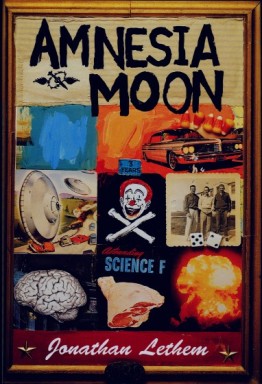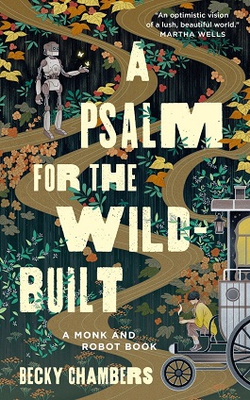
Political fiction employs narrative to comment on political events, systems and theories. Works of political fiction, such as political novels, often "directly criticize an existing society or present an alternative, even fantastic, reality". The political novel overlaps with the social novel, proletarian novel, and social science fiction.
Utopian and dystopian fiction are subgenres of science fiction that explore social and political structures. Utopian fiction portrays a setting that agrees with the author's ethos, having various attributes of another reality intended to appeal to readers. Dystopian fiction offers the opposite: the portrayal of a setting that completely disagrees with the author's ethos. Some novels combine both genres, often as a metaphor for the different directions humanity can take depending on its choices, ending up with one of two possible futures. Both utopias and dystopias are commonly found in science fiction and other types of speculative fiction.

Apocalyptic and post-apocalyptic fiction is a subgenre of science fiction in which the Earth's civilization is collapsing or has collapsed. The apocalypse event may be climatic, such as runaway climate change; astronomical, such as an impact event; destructive, such as nuclear holocaust or resource depletion; medical, such as a pandemic, whether natural or human-caused; end time, such as the Last Judgment, Second Coming or Ragnarök; or any other scenario in which the outcome is apocalyptic, such as a zombie apocalypse, cybernetic revolt, technological singularity, dysgenics or alien invasion.
Since the advent of the cyberpunk genre, a number of cyberpunk derivatives have become recognized in their own right as distinct subgenres in speculative fiction, especially in science fiction. Rather than necessarily sharing the digitally and mechanically focused setting of cyberpunk, these derivatives can display other futuristic, or even retrofuturistic, qualities that are drawn from or analogous to cyberpunk: a world built on one particular technology that is extrapolated to a highly sophisticated level, a gritty transreal urban style, or a particular approach to social themes.
African American literature is the body of literature produced in the United States by writers of African descent. It begins with the works of such late 18th-century writers as Phillis Wheatley. Before the high point of enslaved people narratives, African American literature was dominated by autobiographical spiritual narratives. The genre known as slave narratives in the 19th century were accounts by people who had generally escaped from slavery, about their journeys to freedom and ways they claimed their lives. The Harlem Renaissance of the 1920s was a great period of flowering in literature and the arts, influenced both by writers who came North in the Great Migration and those who were immigrants from Jamaica and other Caribbean islands. African American writers have been recognized by the highest awards, including the Nobel Prize given to Toni Morrison in 1993. Among the themes and issues explored in this literature are the role of African Americans within the larger American society, African American culture, racism, slavery, and social equality. African-American writing has tended to incorporate oral forms, such as spirituals, sermons, gospel music, blues, or rap.
A war novel or military fiction is a novel about war. It is a novel in which the primary action takes place on a battlefield, or in a civilian setting, where the characters are preoccupied with the preparations for, suffering the effects of, or recovering from war. Many war novels are historical novels.

Amnesia Moon is a 1995 novel by Jonathan Lethem. Lethem adapted the novel from several unpublished short stories he had written, all about catastrophic, apocalyptic events. When Tor Books published the second edition in 1996, they commissioned Michael Koelsch to illustrate a new cover art; Koelsch had previously illustrated Lethem's previous book cover art Gun, with Occasional Music.

Mundane science fiction (MSF) is a niche literary movement within science fiction that developed in the early 2000s, with principles codified by the "Mundane Manifesto" in 2004, signed by author Geoff Ryman and "The Clarion West 2004 Class". The movement proposes "mundane science fiction" as its own subgenre of science fiction, typically characterized by its setting on Earth or within the Solar System; a lack of interstellar travel, intergalactic travel or human contact with extraterrestrials; and a believable use of technology and science as it exists at the time the story is written or a plausible extension of existing technology. There is debate over the boundaries of MSF and over which works can be considered canonical. Rudy Rucker has noted MSF's similarities to hard science fiction and Ritch Calvin has pointed out MSF's similarities to cyberpunk. Some commentators have identified science fiction films and television series which embody the MSF ethos of near-future realism.

Black science fiction or black speculative fiction is an umbrella term that covers a variety of activities within the science fiction, fantasy, and horror genres where people of the African diaspora take part or are depicted. Some of its defining characteristics include a critique of the social structures leading to black oppression paired with an investment in social change. Black science fiction is "fed by technology but not led by it." This means that black science fiction often explores with human engagement with technology instead of technology as an innate good.

A dystopia, also called a cacotopia or anti-utopia, is a community or society that is extremely bad or frightening. It is often treated as an antonym of utopia, a term that was coined by Sir Thomas More and figures as the title of his best known work, published in 1516, which created a blueprint for an ideal society with minimal crime, violence, and poverty. The relationship between utopia and dystopia is in actuality, not one simple opposition, as many utopian elements and components are found in dystopias as well, and vice versa.
Portrayals of survivalism, and survivalist themes and elements such as survival retreats have been fictionalised in print, film, and electronic media. This genre was especially influenced by the advent of nuclear weapons, and the potential for societal collapse in light of a Cold War nuclear conflagration.

Climate fiction is literature that deals with climate change. Generally speculative in nature but inspired by climate science, works may take place in the world as we know it, in the near future or in fictional worlds experiencing climate change. The genre frequently includes science fiction and dystopian or utopian themes, imagining the potential futures based on how humanity responds to the impacts of climate change. The genre typically focuses on anthropogenic climate change and other environmental issues as opposed to weather and disaster more generally. Technologies such as climate engineering or climate adaptation practices often feature prominently in works exploring their impacts on society.

Solarpunk is a literary and artistic movement that envisions and works toward actualizing a sustainable future interconnected with nature and community. The "solar" represents solar energy as a renewable energy source and an optimistic vision of the future that rejects climate doomerism, while the "punk" refers to the countercultural, post-capitalist, and decolonial enthusiasm for creating such a future.
Robert Evans is an American author, journalist, and podcast host who has reported on global conflicts and online extremism. A former editor at the humor website Cracked.com, Evans now writes for the investigative journalism outlet Bellingcat while working on several podcasts, including Behind the Bastards, Behind the Police, Behind the Insurrections, It Could Happen Here, The Women's War, and Worst Year Ever. In 2021 he published his first novel, After The Revolution, in a serialized podcast.

A Psalm for the Wild-Built is a 2021 solarpunk novella written by American author Becky Chambers, published by Tor.com on July 13, 2021. It is the first book in the Monk & Robot duology, followed by A Prayer for the Crown-Shy, which was released on July 12, 2022. It won the Hugo Award in 2022.

The Shattering: America in the 1960s is a 2021 book by historian Kevin Boyle, published by W.W. Norton & Company. The book depicts American history throughout the 1960s.

Prophet Song is a 2023 dystopian novel by Irish author Paul Lynch, published by Oneworld. The novel depicts the struggles of the Stack family, including Eilish Stack, a mother of four who is trying to save her family as the Republic of Ireland slips into totalitarianism. The narrative is told unconventionally, with no paragraph breaks.

Pastoral science fiction is a subgenre of science fiction which uses bucolic, rural settings, like other forms of pastoral literature. Since it is a subgenre of science fiction, authors may set stories either on Earth or another habitable planet or moon, sometimes including a terraformed planet or moon. Unlike most genres of science fiction, pastoral science fiction works downplay the role of futuristic technologies. The pioneer is author Clifford Simak (1904–1988), a science fiction Grand Master whose output included stories written in the 1950s and 1960s about rural people who have contact with extraterrestrial beings who hide their alien identity.












